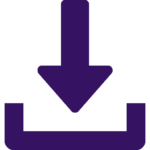Moving from paediatric to adult care
Key points
- Becoming independent in your health care is an important part of managing IBD.
- Surround yourself with a healthcare team that you trust to support you.
- Practice the skills you need to care for your own health early so that the transition is less overwhelming.
Moving from paediatric care to adult care in the health system is a learning process. You may want to start thinking about this transition as soon as you turn 14 so that you’re fully prepared for health independence. Your doctor may even bring up this transition process when you turn 12 or 13.
In some ways your graduation from paediatric care is as important as your school graduation. Taking full control of your own health can be empowering and make you feel that you own your Crohn’s or colitis.
On your healthcare journey you might also want to keep your parents or carers involved so you can both feel confident that your treatment plan is working as you enter adulthood.
Managing your Crohn’s or colitis independently can be a bit overwhelming at first but you’re not alone. Many other young people feel the same way when leaving their paediatric team so it’s perfectly normal to need help. We have some tips here for you so you can plan your own transition pathway.
Plan (12-14)
At this stage you can start to get a better understanding of your condition and build the skills you need to manage IBD independently. When you feel ready you can raise the topic of moving to adult care with your doctor if they haven’t already. Start thinking about the questions you have about your IBD and ask the doctor yourself instead of letting your parents do all the talking.
If you really want to be on top of things you can start having a look at your My Health Record and ask your parents to help you get your own Medicare card when you turn 14.

Around 25% of people with IBD are diagnosed before the age of 20 years while the most common age for diagnosis is between 15 and 29 years.
Prepare (14-16)
Being as prepared as you can before entering the adult health system will help you stay on track with your management and treatment. Now that you have a better understanding of your Crohn’s or colitis you can start playing a more active role in your own healthcare.
Have a go at going alone to part or the whole of your appointment. Bring along the questions you want to talk about with your doctor. They could be about your medication, mental health or anything in between. You can even make some goals that you want to reach around becoming more independent with your healthcare.
You should also be getting an idea of what self-care approaches work for you to manage stress and anxiety.
Make the move (16-18)
It’s time to start gearing up for the big change. You should have a complete understanding of your condition, treatments and who to contact if you have any concerns about your health.
It is also really helpful if you can talk more comfortably about how you’re feeling and other things in your life like relationships, sexual health, mental health, drugs use and lifestyle. IBD can affect every aspect of your life so don’t hesitate to talk about other areas of your health with your doctor.
The timing of your transfer to adult care will involve a discussion between you and your specialist or another member of your healthcare team. It will depend on where you’re at in life and shouldn’t happen during other stressful changes like year 12. The age of transfer will differ for each young person but should occur before your 19th birthday.
By the time you have fully moved to adult care you should be:
- Making your own appointments
- Communicating with your healthcare team
- Organising your medication and treatments
- Advocating for yourself and making informed decisions about your health
Be sure to have your transition plan completed before you leave your children’s hospital so you know who will be looking after you in the adult world.
See how you’re doing (18+)
Around 6-18 months after you’ve completed your transition to adult care it is a good chance to see how you’re tracking.
If something isn’t working for you, raise it with your doctor or specialist. In some cases, you may want to ask for a second opinion or even change health professionals if you don’t feel supported enough. You can also call our Helpline if you have any questions.
Who can be in your healthcare team?
- General practitioner
- Gastroenterologist
- Gastroenterology registrar
- IBD nurse
- Dietitian
- Psychologist
- Colorectal surgeon
- Research Assistant
- Other clinician or allied health professional
Further information
